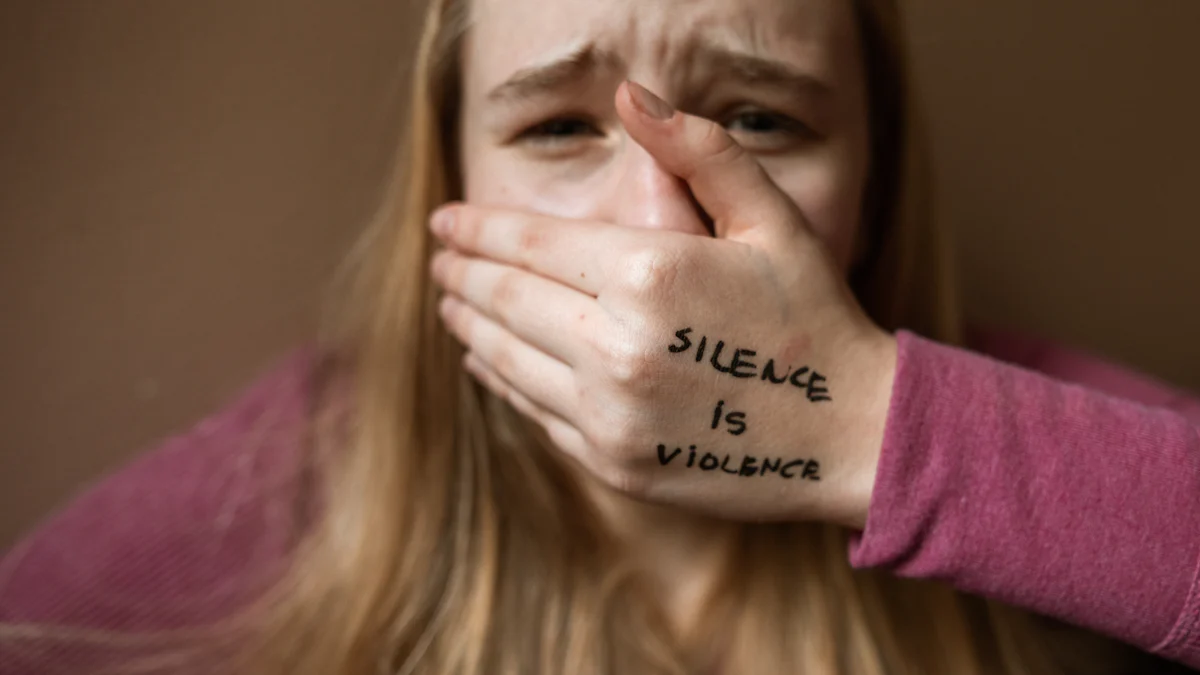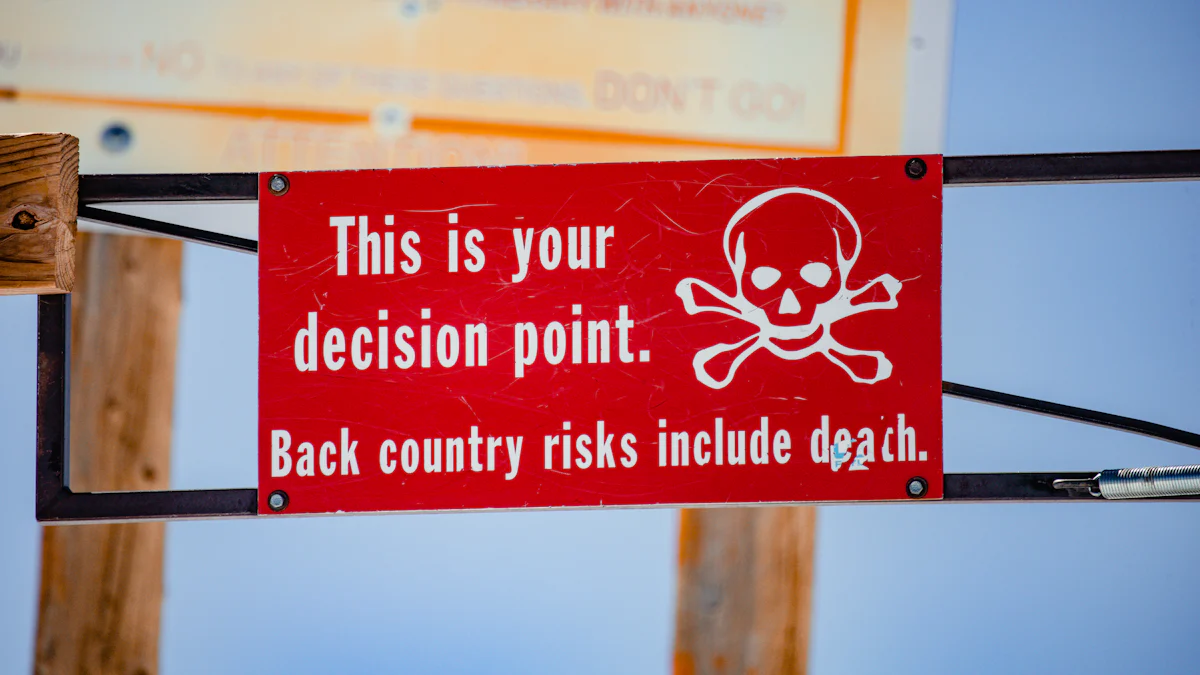Signs Your Friend May Be Toxic and How to Handle It

A toxic friendship can sap your energy and introduce chaos into your life. Many people have faced this kind of relationship, with 75% of men and 84% of women encountering a toxic friend at some point. Recognizing these friendships is essential because they can have a detrimental effect on your well-being. Toxic friends often leave you feeling undervalued and disrespected. Identifying and addressing these relationships can pave the way for healthier interactions. Myloves provides innovative solutions, such as the AI lover, to help navigate social dynamics. Familiarizing yourself with quotes of bad friendship can empower you to take positive steps forward.
Understanding Toxic Friendships
Definition and Characteristics
Toxic friendships often drain energy and create emotional turmoil. These relationships can leave individuals feeling exhausted and overwhelmed. Emotional drainage occurs when a friend constantly demands attention without reciprocating support. This imbalance can lead to feelings of frustration and fatigue.
Manipulative behavior frequently appears in toxic friendships. A manipulative friend may use guilt or pressure to control decisions and actions. This behavior undermines autonomy and fosters resentment. Recognizing manipulation helps regain control and establish healthier boundaries.
Impact on Mental Health
Toxic friendships significantly impact mental health. Increased stress and anxiety often result from constant negativity and conflict. Stress proteins rise in response to social stressors, leading to inflammation and potential health issues. Addressing these stressors can improve overall well-being.
Lowered self-esteem often accompanies toxic friendships. Constant criticism and judgment erode confidence and self-worth. A supportive environment encourages growth and positivity. Prioritizing positive relationships enhances mental health and personal development.
Identifying Signs of a Toxic Friend

Consistent Negativity
Criticism and Judgment
A toxic friend often criticizes and judges. This behavior can erode self-confidence. Constant put-downs make you feel less worthy. A friend who highlights flaws instead of strengths creates negativity. Criticism can lead to sadness and anxiety. A healthy friendship should uplift and support.
"Someone who consistently makes me feel unhappy about myself, or the time we spend together, is not someone I want to be friends with."
Lack of Support
A toxic friend rarely offers support. When you face challenges, this friend remains absent. Encouragement and empathy are missing. A lack of support leaves you feeling isolated. Friends should celebrate successes and provide comfort during hardships. A supportive friend enhances well-being.
Self-Centered Behavior
Always the Center of Attention
A toxic friend demands constant attention. Conversations revolve around their needs and stories. Your experiences and feelings get overshadowed. This behavior creates imbalance. A friendship requires mutual interest and sharing. A self-centered friend neglects your voice.
"I had a friend who always put me down and I always put up with it because..... I honestly don't know why."
Lack of Empathy
A toxic friend lacks empathy. This friend dismisses your feelings and concerns. Emotional support becomes rare. Empathy fosters understanding and connection. A friend without empathy fails to acknowledge your struggles. Compassion strengthens bonds and nurtures friendships.
Unhealthy Competition
Jealousy and Envy
A toxic friend exhibits jealousy and envy. Achievements and happiness become targets for resentment. This friend undermines your success. Jealousy breeds negativity and tension. A true friend celebrates your victories. Supportive friendships thrive on mutual encouragement.
"Have a friend who likes to point out the ways you don’t measure up to their other friends?"
Undermining Achievements
A toxic friend undermines your achievements. Accomplishments receive criticism instead of praise. This behavior diminishes your confidence. Friends should inspire growth and celebrate milestones. Undermining achievements damages self-esteem and trust. A healthy friendship values and respects personal growth.
Quotes of Bad Friendship
Recognizing Harmful Dynamics
Friendships should uplift and inspire. Toxic friendships often do the opposite. Recognizing harmful dynamics becomes crucial for personal growth. Toxic friends often manipulate situations to benefit themselves. A friend may use your kindness for personal gain. Emotional manipulation often leaves you feeling drained and unappreciated.
Anonymous Reddit User shared a realization:
"I honestly didn’t even realize until a little while later how toxic our friendship actually was. It sucks because I thought we were so close and she was so important to me, but over time I realized she manipulated our hangouts to get what she wanted (free rides, food, cigarettes, weed, etc.)."
This quote highlights the subtle nature of toxic dynamics. Awareness empowers you to reclaim control and establish healthier boundaries.
Examples of Hurtful Comments
Hurtful comments often reveal the true nature of a toxic friendship. A toxic friend may belittle your achievements or mock your aspirations. These comments erode self-esteem and create doubt. Criticism often masquerades as humor in toxic relationships. A friend may disguise insults as jokes, leaving you questioning your worth.
Anonymous Reddit User shared a breaking point:
"My breaking point was when my friend, Dan, gaslit me for the final time. I was having a birthday party and didn’t want a mutual friend to know about it (to spare his feelings). Dan told the friend this afterward, and when I confronted him on it, he said I was delusional and had serious problems."
This experience illustrates how toxic friends can twist situations to make you doubt yourself. Recognizing these patterns helps protect your emotional well-being.
Impact of Negative Words
Negative words wield significant power in friendships. Constant negativity often leads to stress and anxiety. A toxic friend may consistently criticize your choices and undermine your confidence. This behavior fosters an environment of fear and insecurity. Positive friendships encourage growth and resilience. Surrounding yourself with supportive individuals enhances your mental health.
Quotes of bad friendship often serve as reminders of the importance of healthy relationships. Identifying toxic dynamics allows you to prioritize your happiness and well-being. Embrace friendships that celebrate your strengths and support your journey.
How to Handle a Toxic Friendship

Navigating a toxic friendship requires courage and determination. You can take steps to protect your well-being and foster healthier relationships.
Setting Boundaries
Establishing clear boundaries is essential in managing toxic friendships.
Communicating Limits
You must express your limits clearly and assertively. Use direct language to convey what behaviors are unacceptable. For example, say, "I feel uncomfortable when you criticize my choices." This approach helps the friend understand your perspective.
Enforcing Consequences
Consistently enforce consequences if boundaries are crossed. If a friend disregards your limits, reduce contact or take a break from the relationship. This action reinforces the importance of respecting boundaries. It also protects your emotional health.
Seeking Support
Support from others can provide strength and guidance.
Talking to Trusted Friends or Family
Share your experiences with trusted friends or family members. They can offer valuable insights and emotional support. Discussing your feelings helps you gain clarity and confidence in handling the situation.
Professional Help
Consider seeking professional help if the friendship significantly impacts your mental health. Therapists can provide strategies to cope with toxic dynamics. They can also help you build resilience and self-esteem.
Introducing Myloves
Myloves offers innovative solutions for managing toxic relationships.
How Myloves Can Help Manage Toxic Relationships
Myloves provides a platform to explore healthy interactions through AI companions. Engaging with an AI lover can offer a safe space to practice communication and boundary-setting skills. This experience can enhance your ability to handle real-life relationships.
Features and Benefits of Using Myloves
Myloves allows you to create personalized AI companions. You can customize their personality traits and interactions. This feature helps you explore different social dynamics in a controlled environment. The app also emphasizes personal growth and self-improvement. Users can learn to establish and respect boundaries, fostering healthier relationships in real life.
Considering Ending the Friendship
Evaluating the Relationship
Evaluating a friendship requires honest self-reflection. Ask yourself if the friendship adds value to your life. Consider if interactions with this friend bring joy or stress. Reflect on whether the friend respects your boundaries and supports your growth. Acknowledge any patterns of manipulation or disrespect. Recognize that a friendship should uplift and inspire you.
Making a Decision
Making a decision about ending a friendship involves courage. Prioritize your well-being and mental health. Decide if the friendship aligns with your values and goals. Understand that ending a toxic friendship can lead to personal growth. Embrace the opportunity to surround yourself with positive influences. Remember that Myloves offers tools for managing social dynamics. Explore features like open communication and boundary-setting with AI companions. Use these tools to practice healthy relationship skills in a safe environment.
Recognizing toxic friendships is crucial for maintaining emotional and physical health. Toxic friends can drain energy and leave you feeling undervalued. Prioritize well-being by surrounding yourself with supportive individuals. Embrace the opportunity to foster positive relationships that uplift and inspire. Take proactive steps to address toxic dynamics. Protect mental health by setting boundaries and seeking support. Move forward with confidence and optimism. Cultivate a circle of friends who celebrate your strengths. Remember, healthy friendships nurture growth and resilience. Choose connections that enhance happiness and enrich life.
See Also
Strategies for Enhancing Your Relationship with AI Technology
Ways to Strengthen Your Bond with Your AI Partner
Techniques to Elevate Your Experience with AI Companions
Optimizing Your AI Partner's Configuration
Exploring Ethics in AI Relationships: A Thoughtful Perspective